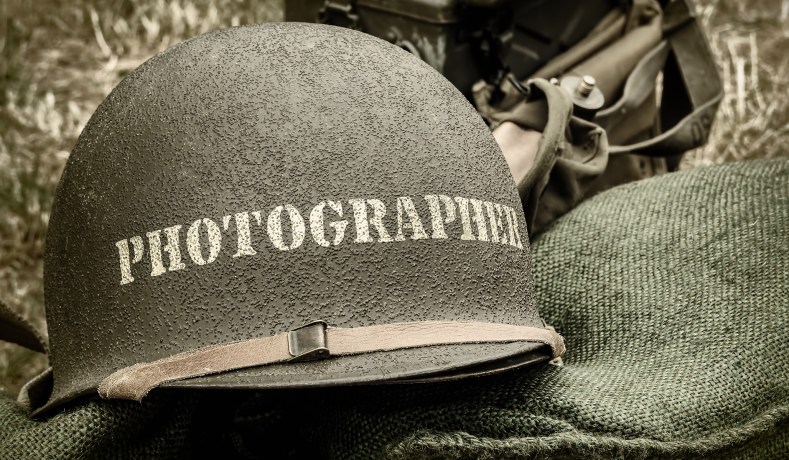
August 15 marks the 75th anniversary of the end of World War II, with the surrender of Japan in Tokyo Bay, and perhaps the most ambitious commemoration of the war has been going for four years now. Since December of 2016, Chicago’s Those Were the Days, an old-time radio show that began broadcasting in 1970, has been covering the war in “real-time,” letting listeners relive history’s greatest conflict as it happened.
This year will be the last major anniversary with significant numbers of WWII veterans still alive; today, there are only 300,000 veterans remaining of the twelve million U.S. men and women who served in history’s greatest conflict. Even without the Internet and social media at the time, the war is likely the most-covered event in history, and the world has been flooded with still and moving images, memoirs and novels, art and memorials from the conflict for the past three-quarters of a century. For those who grew up in an America where WWII vets were not only ubiquitous, but were local and national leaders, principals and doctors, priests and rabbis, screen stars, shop owners, police, and teachers, their slow disappearance has been one of the more disorienting aspects of the passing of the decades. Every family used to have an uncle or grandfather, cousin, often a father, sometimes a mother, who served in the Good War, and clan gatherings were often replete with old war tales (“days of sheer boredom punctuated by moments of sheer terror,” seemed to be the inevitable takeaway).
This week, Those Were the Days, wraps up its commemoration of WWII on WDCB, the radio station of suburban College of DuPage, a fine jazz station. Host Steve Darnall got the idea, he says, after listening to the show’s founder, Chuck Schaden, who did a similar project in 1991, for the 50th anniversary of the war. “I felt it was important to share these sounds of a time when radio began to understand and embrace its own remarkable potential,” Darnall said in an email.
Darnall has been broadcasting (and streaming, for those not in Chicago) an ongoing mix of news reports, public speeches, and war-connected radio programs on or near the dates they occurred 75 years ago, all leavened with a generous dollop of the music of the era. From big band broadcasts and war bond rallies to all-star revues such as Jack Benny, Glenn Miller, Edward R. Murrow, and Fibber McGee, Those Were the Days has become the closest thing to a 1940s time machine on Saturday afternoons from 1-5 p.m. Central time (and archived for two weeks on a rolling basis). Not every segment every week is devoted to WWII, but over the past four years, barely a week has passed without some replaying of a war-related broadcast. Darnall estimates that he and his team have played some 400 broadcasts from the war by now. From the depths of America’s early losses in the Pacific to the enormity of D-Day, and from reports of meetings of the Big Three at Tehran and Yalta to the suicide of Hitler, Those Were the Days has made its listeners feel (as another long-ago, well-known radio series put it) that “you are there.”
One of the most powerful effects of the series is to hear the voices of those who once were so central to America’s history, above all President Franklin D. Roosevelt. For a generation of Americans, FDR was the president, due not only to his four terms in office, but because of his herculean efforts during the Great Depression and the war. When, in April of this year, Those Were the Days devoted an entire four-hour show to FDR’s death, the emotion and shock of his sudden passing was, surprisingly, almost overwhelming for many listeners. The following week, as the show “covered” FDR’s laying in state and funeral, the grief and sense of loss in the voices of even the most experienced of broadcasters was palpable. Now, for the past several weeks, the voice of President Harry S. Truman has been broadcast, and it has given the most direct, and eerie, feeling of actually getting use to Truman as president.
As an effort of public education, Darnall’s four-year effort may be unparalleled, and one can only hope that he may one day decide to collect every WWII show he’s broadcast, making them available to historians and history buffs, not to mention keeping them in reserve for the 100th anniversary of the war. Historians owe him (and Schaden before him) a debt of thanks for bringing back to life those vital days in such a comprehensive way, reviving comedies and dramas, war bond drives and news bulletins. For those who have not been listening over the past four years, this coming Saturday, August 8, will be the culmination of the series, with V-J Day. It’s a rare opportunity to relive history.

